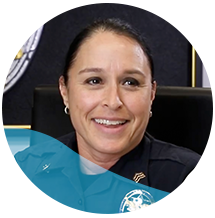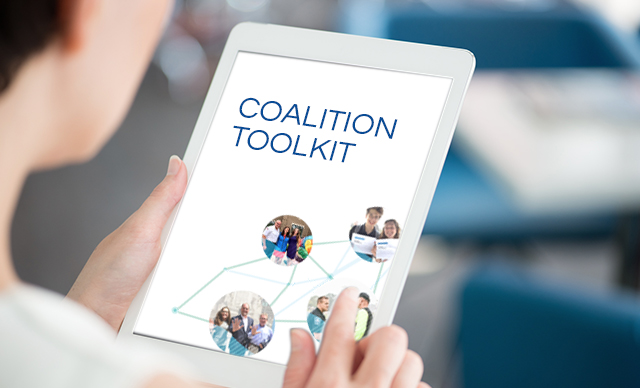When a police officer is called out to a mental health crisis, it’s that officer who has to assess the situation and decide the best course of action.
Police Officers in the Coalition
What role they play:
Police officers determine the source of the crisis and how to best assist in getting them the help they need. Instead of detaining patients or taking legal action, the police department’s role in the initiative is to get the proper support and resources to people in need to address their challenges.
Why they are integral to the Coalition’s success:
It’s important for the community to have positive interactions with officers so they feel comfortable being open about their situation. Officers have to understand a person’s needs and get them the help to heal. This translates back to a healthy productive police agency and it translates to a healthy productive community.
The impact they’ve had:
Our officers have seen a shift in the type of calls they receive and the type of reaction they get from community members who call. We’ve seen an increase in calls to the department for mental health-related challenges, this shows us people are more comfortable talking about their mental health and trust that an officer, and the city as a whole, will do what they can to help.


“We’re all human, no one is immune to any health challenge, we’re no different than anyone we respond to or assist. Being able to parlay mental health knowledge into a resource for someone makes the job satisfying and you know you did a good day’s work”
SERGEANT ANGELLA ELLISON | FISHERS, INDIANA POLICE DEPARTMENT
Access the Police Department Resources
Check Back Soon For Your Specialized Toolkit
This toolkit focuses on the tools and processes the Fishers Police Department used for training and implementing the mental wellness initiatives.
- Training Protocols
- Implementation Plans
- Collaboration Guidelines

Quick Tips
From the Fishers Police Department

Establish Leadership
First and foremost is leadership. You need to identify what’s important to the community and then communicate that with staff. Find key people within your staff that can identify the importance of helping people with a mental crisis. It’s up to leadership to communicate the goals, where the agency is headed, and defining success.

Compile Resources
The only way your going to be able to build a coalition and change the way you approach mental illness is by moving together in unison so that everybody gets what they need out of the end result which is ultimately getting someone the help that they need to get better.

Identify Real Problems
One of the first things you have to do is take a look at what it is your dealing with in your specific community.
Are You Ready to Address Mental Illness?
Use our resources and tools in your own community.
The community now knows to ask for CIT officers. As officers, we have become more empathetic, more compassionate, more knowledgeable so they can offer better services.















